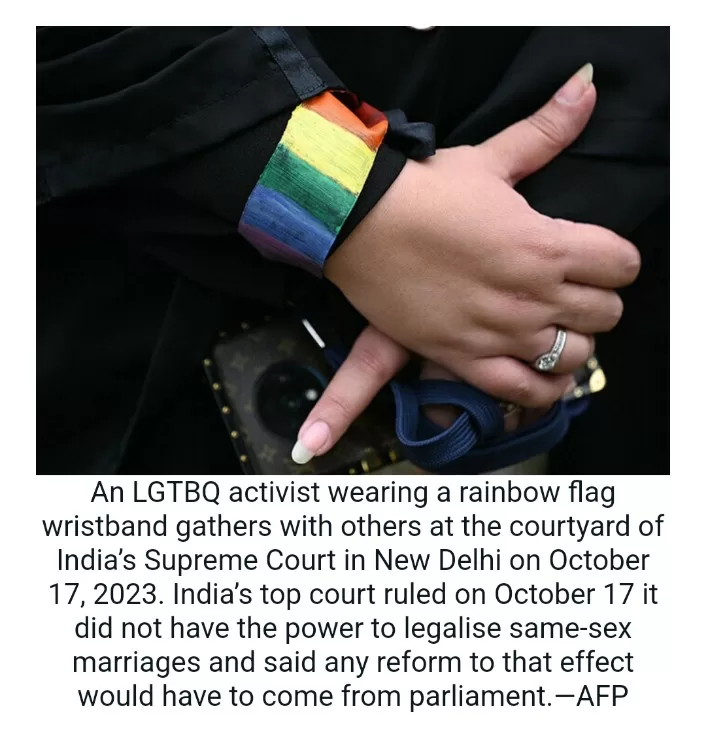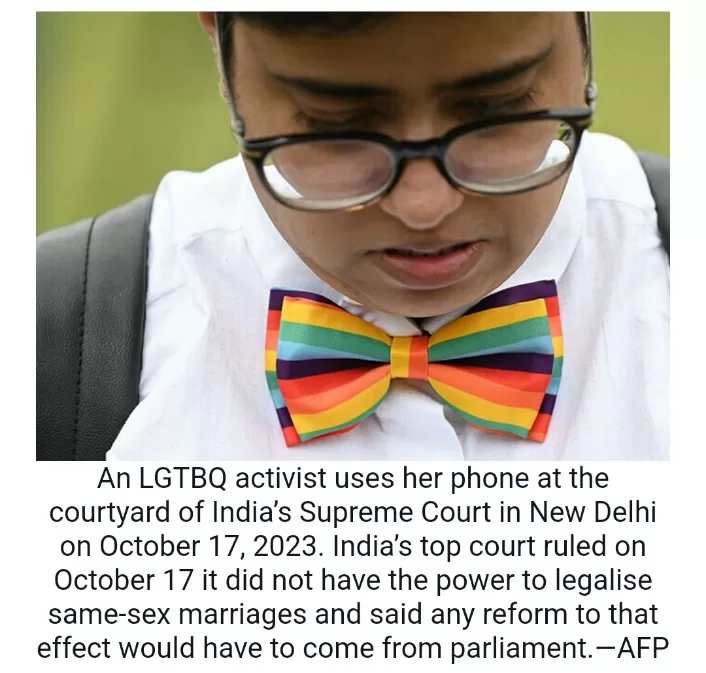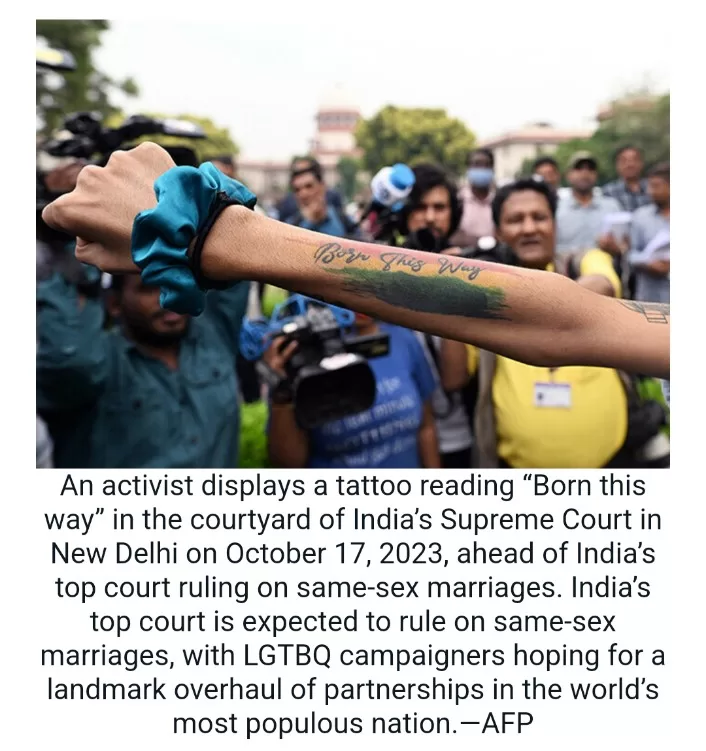India’s highest court, led by Chief Justice D.Y. Chandrachud, delivered a pivotal verdict on Tuesday, stating that it lacks the authority to legalize same-sex marriages and emphasized that this prerogative rests with the country’s parliament. The five-judge bench, which heard arguments between April and May this year, witnessed a nuanced discussion, with Chandrachud acknowledging that there exists both consensus and disparity regarding the extent to which the nation should embrace same-sex unions. Significantly, two of the four other judges concurred with Chandrachud’s view, forming a majority opinion.

This landmark ruling arrives five years after the historic 2018 judgment that abolished a colonial-era ban on homosexual relationships. India joins only Taiwan and Nepal in Asia, as the sole nations permitting same-sex partnerships. In a region where traditional values continue to hold sway over politics and society, the prevailing conservative climate has been a notable obstacle.

Prime Minister Narendra Modi’s administration had vehemently opposed the petitions, characterizing them as “urban elitist views” and insisting that parliament represents the appropriate forum for the discussion and enactment of legislation on this matter. Furthermore, the government argued that such marriages are incongruent with the conventional Indian family structure, which entails a husband, a wife, and children.
Despite the legal setback, LGBTQ activists and proponents of marriage equality are fervently anticipating a transformative shift in the world’s most populous nation, as they continue their advocacy for a comprehensive overhaul of partnership norms.







